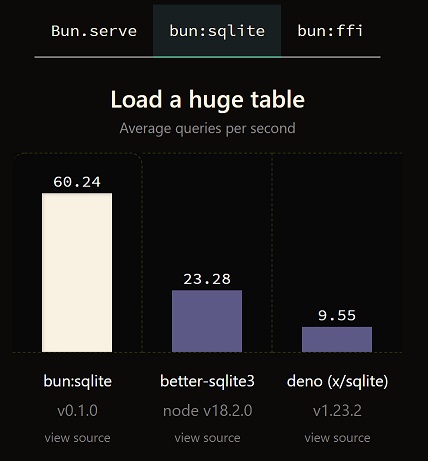
Upstart JavaScript runtime Bun (the name perhaps an abbreviation of bundle) has got some funding. Oven, a company formed to support and commercialize the project, has attracted $7 million from venture capitalists Kleiner Perkins, according to the announcement, and including some unspecified participation from Guillermo Rauch, the CEO and founder of Vercel, a web application hosting platform.
The Bun code is on GitHub and uses the MIT License, though it depends on the Apple-sponsored JavaScriptCore, also used by WebKit, which is LGPL2 (GNU Lesser General Public License v2).

Bun inventor Jarred Sumner posted that Oven’s business model will be the provision of “fast serverless hosting and continuous integration for backend and frontend serverless apps,” powered by Bun.
He added that “the plan is to run our own servers on the edge in datacenters around the world,” implying that it will not be reliant on public cloud. The new company is seeking engineers, noting that the coding skills needed will be mainly “low level systems programming using Zig and C++”.
Today, Bun is far from production-ready. The latest release is 0.1.10 and the runtime is neither stable nor complete. Sumner though said that the goal is “a stable release of Bun in under six months from today.” That seems ambitious, though he has made remarkable progress in a short time. “I spent more than a year building Bun solo in private beta. Two months after launch, Bun has over 32,000 stars on GitHub and 14,000 members on Bun’s discord server,” he wrote.
In a tweet aimed at potential new employees, the company warned that “Oven is going to be a grind, especially the first nine months or so. If work-life balance means a lot of time spent not working, it’s probably not a good fit.”
Oven faces plenty of competition, from existing companies in the same market, such as Vercel and Netlify, and for Bun itself, from competing runtimes including the currently dominant Node.js and its more recent rival Deno. Bun has shown statistics showing much faster HTTP serving than either Node.js or Deno, which was likely a factor in Deno founder Ryan Dahl promising the “fastest JavaScript web server ever built” in a post earlier this month.
The high level of interest in both Bun and Deno partly reflects another trend: that a significant number of developers would like a different approach to building JavaScript or TypeScript applications than the model offered by Node.js, with its node-modules directory sometimes hiding insecure dependencies and its legacy attachment to CommonJS modules.
Bun has impressed developers with its performance and coding experience (stability apart). “Bun has blown me away in terms of performance. … I’ve found bun repeatedly impressing me with both speed and elegance,” said a developer on Hacker News.
Immediate goals for Bun include high Node.js compatibility (another area where Deno has been weak but which its developers are now addressing) and fixing stability issues. The roadmap includes bundling on Edge servers, a binary archive format for the output from builds, support for the most popular server-side rendering frameworks, and support for Windows, where currently the Windows Subsystem for Linux is required.
